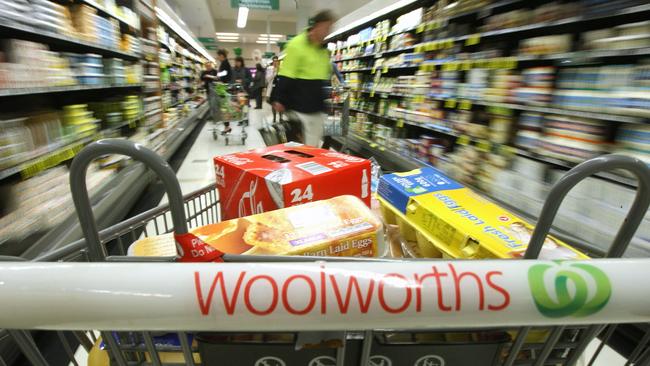Turnbull endorses ‘effects test’
COLES, Woolworths and other big retailers could be forced to raise their prices following a surprise backflip by Malcolm Turnbull.

COLES, Woolworths and other big retailers could be forced to raise their prices following a surprise backflip by Malcolm Turnbull.
The Federal Government has endorsed changes to competition laws which would protect small business against the misuse of market power by bigger players.
Cabinet signed off on the “effects test” this week and the Coalition party room was briefed on it on Wednesday.
Speaking to reporters, Mr Turnbull, who previously argued against an effects test, said this was “yet again my government taking long overdue reforms out of the too-hard basket”.
“This is a vital economic reform,” he said. “We know that while larger firms are often very innovative and competitive, they are more innovative if the hot breath of competition is coming down their neck.”
The small business lobby and the Nationals have long campaigned for an effects test to be added to misuse of market power provisions in section 46 of the Competition and Consumer Act.
Last year, the Harper Review recommended the changes, which would ban conduct that has the purpose, effect or likely effect of substantially lessening competition.
Big business, including Coles, Woolworths and the Retail Council lobby group, have previously warned that introducing an effects test could force them to raise prices and stop opening new stores.
“The backflip by the government is simply bad policy and the consumer is the loser,” Retail Council chief executive Anna McPhee said.
Business Council of Australia President Catherine Livingstone said she was “disappointed” in the decision. “If Australia wants to have an innovation-driven economy, this is poor policy,” she said.
“We participated in good faith throughout the consultation process, and will continue to work with the government to minimise the risks and unintended consequences from changes to the law.”
Woolworths CEO Brad Banducci also said he was “disappointed” in the decision. “As we’ve said previously, we believe that the changes will have a negative effect on not only competition but also customer-led innovation,” he said.
“They have the potential to create uncertainty for business and so reduce investment and negatively impact the economy and jobs.”
But Peter Strong, chief executive of the Small Business Council of Australia, said he was “really pleased”.
“This has been a point of conflict between a couple of big businesses who don’t want competition and the rest of the business community,” he said.
“Common sense has ruled. The government has resisted absolute pressure and threats from the Business Council of Australia and Wesfarmers and they should be congratulated.”
Mr Strong said claims that the supermarkets would have to raise prices were untrue. “They were just making that up,” he said.
Choice CEO Alan Kirkland said the change was a “good thing for consumers” and described the threat of raising supermarket prices as a “huge scare campaign from big business”.
“When you’ve got effective competition in markets that means consumers have more choice and they can buy things at fairer prices,” he said.
“The only people who oppose this change are big business, and you’ve got to be suspicious of that. This will make it easier for the ACCC to crack down on big players misusing their market power.”
ACCC chairman Rod Sims said Wesfarmers boss Richard Goyder had been “very badly advised” in saying the new law would force the retailer to rethink opening new stores.
“This law does not change the test that has to be applied [in opening new stores] at all, not one skerrick,” he said.
“Any new store is either an acquisition, buying land or signing a lease, all of which are already subject to the substantial lessening of competition test, not only purpose but also effect.
“I don’t think Richard meant to mislead, I believe he was just very badly advised.”
Labor today echoed concerns raised by the Business Council of Australia that the changes could lead to a “lawyer’s picnic”, but Mr Sims says the BCA is “wrong”.
“There will be less need for lawyers, not more,” he said, now that the “massive complexity of section 46” as it currently stands has been addressed.
“This means we’ll be able to better address anti-competitive conduct,” he said.
“It’s not going to bring a massive amount of stuff into the net, but it is going to seriously move the dial and mean we can better deal with companies that seek to exclude their competitors.”
THE HARPER REVIEW’S EFFECT TEST:
• Effects test recommended to be added to misuse of market power provisions in section 46 of Competition and Consumer Act
• It would ban conduct that has the purpose, effect or likely effect of substantially lessening competition, rather than conduct that damages a competitor
• Courts would have to decide how much the conduct in question increases competition against how much it decreases competition
• The test would apply to businesses with substantial market power, such as Coles and Woolworths
• It is already used and accepted in other parts of competition law
• Big supermarkets fear they could end up in court battles over store openings, discounting, supply chain efficiencies and innovations
Source: AAP



